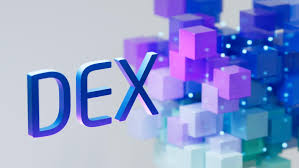Calibra leader David Marcus: Libra's anti-money laundering standards will outperform other payment networks
According to Cointelegragh on October 30th, Calibra CEO David Marcus recently said that Facebook's stable currency project Libra's anti-money laundering (AML) standard will outperform other payment networks.

Image source: wikipedia
Financial media Finextra quoted Marcus at a Money 20/20 conference in Las Vegas on October 29, saying he explained the nuances of the project in anti-money laundering in an interview:
- Russia: The aluminum plant is going to mine, is it going to win 20% of the global bitcoin production?
- Harvard Business Review: Blockchain fires, but you may know a little about it
- BCH is on the rise as expected, the market is still in a state of consolidation
“What I want to say is that Libra is much more effective at implementing sanctions than other payment networks than other payment networks.”
Marcus said the network's underlying blockchain technology will enable regulators to better track transactions and identify suspicious activity, he added:
“The open ledger of blockchain technology allows regulators to look at what is happening and identify the risks without relying on reports. We have a responsibility to do this work, and now we have established a governance structure, we This improvement can now be proved."
The Libra wallet Calibra's CEO added that any wallet can participate in the network as long as it meets the "anti-money laundering" and "know your customer (KYC)" standards. He added:
“It was originally designed to be competitive, but over time, we still need to win the trust of people to use Calibra.”
a "real global" payment network
Marcus continues to say that Libra will improve the lives of millions of people by providing a global payment network. He believes that "people should get something better than they have now."
Earlier this summer, US lawmakers questioned Marcus about the Libra project, expressing concern about the project and its potential to facilitate money laundering and other illegal activities, sometimes even ridiculing the project.
Earlier this month, when Mark Zuckerberg, the CEO and founder of Facebook, testified before the House of Representatives Financial Services Committee, these regulators still showed negative views. Regarding the negative news that emerged and the arguments from the observers, Marcus said on Money 20/20:
“The most meaningful innovations have profoundly changed the lives of millions of people around the world, but these innovations are always condemned from the public at the beginning.”
We will continue to update Blocking; if you have any questions or suggestions, please contact us!
Was this article helpful?
93 out of 132 found this helpful
Related articles
- Analysis: Why can Bitcoin submit a listing application secretly?
- Tiandao has a good reincarnation, who the SEC has spared: What impact does the SEC’s regulatory punches have on the encryption market?
- BCH's "time bomb"? The commentary believes that "halving BCH" is a disaster for them.
- What is the difference between the central bank digital currency DCEP and Alipay, WeChat and Bitcoin?
- BCG Boston Consulting Analysis Report: Financial + Blockchain, Going Out喧嚣
- Bitcoin has secretly submitted a listing application to the US SEC. The sponsor is Deutsche Bank.
- Babbitt Column | The Essence of Blockchain: The Essence of Computation and Consensus






